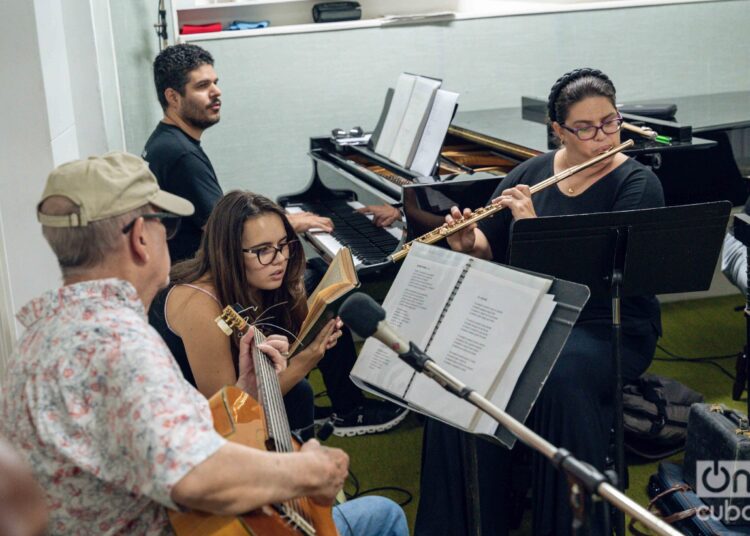Every morning, for over a month now, the same ritual is repeated: punctuality at 10:00, a sip of steaming coffee and the thick, heavy door — like a vault guarding a treasure — closes. Inside, in a small and cozy space — more of a lair than a recording studio — among microphones and music stands, with a grand piano, guitars, flutes, clarinet, drums, double bass and vibraphone, a handful of musical alchemists knead songs like someone baking bread, with patience, rigor and love, for the family.
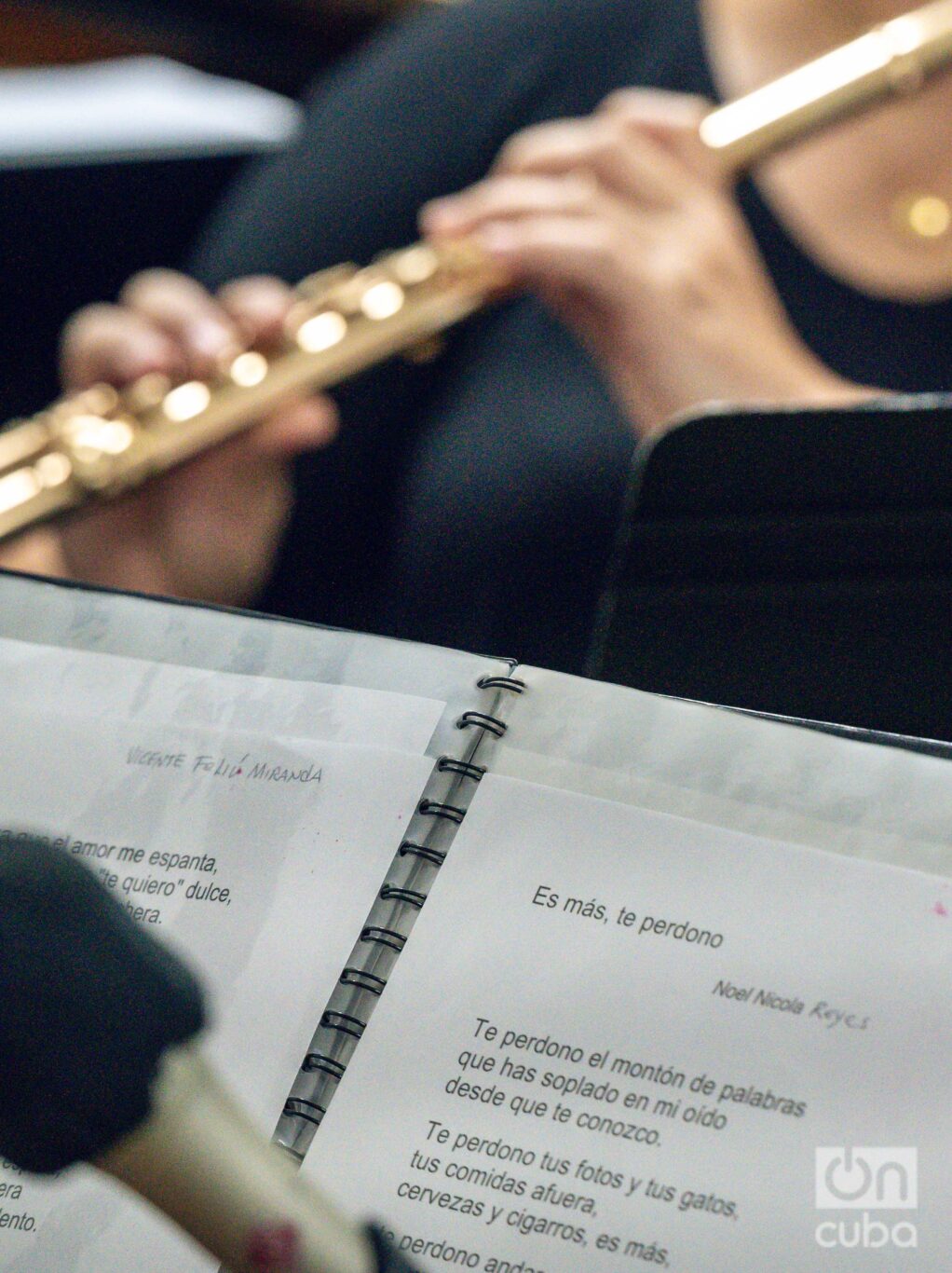
It’s happening in Havana, at Ojalá Studios, where Silvio, Niurka, Jorge, Emilio, Malva, Oliver, Rachid, Maikel and Jorgito are rehearsing for a Latin American tour that will take them to five countries and twelve concerts in just a few days. They’ve been playing together for over a decade, understanding each other just by looking at each other. However, a couple of years had passed since their last performances: that Zócalo in Mexico City packed with over one hundred thousand people in the rain, and a heartwarming concert on the Isle of Youth in Cuba. Now, in the intimacy of the studio, the complicity returns intact.
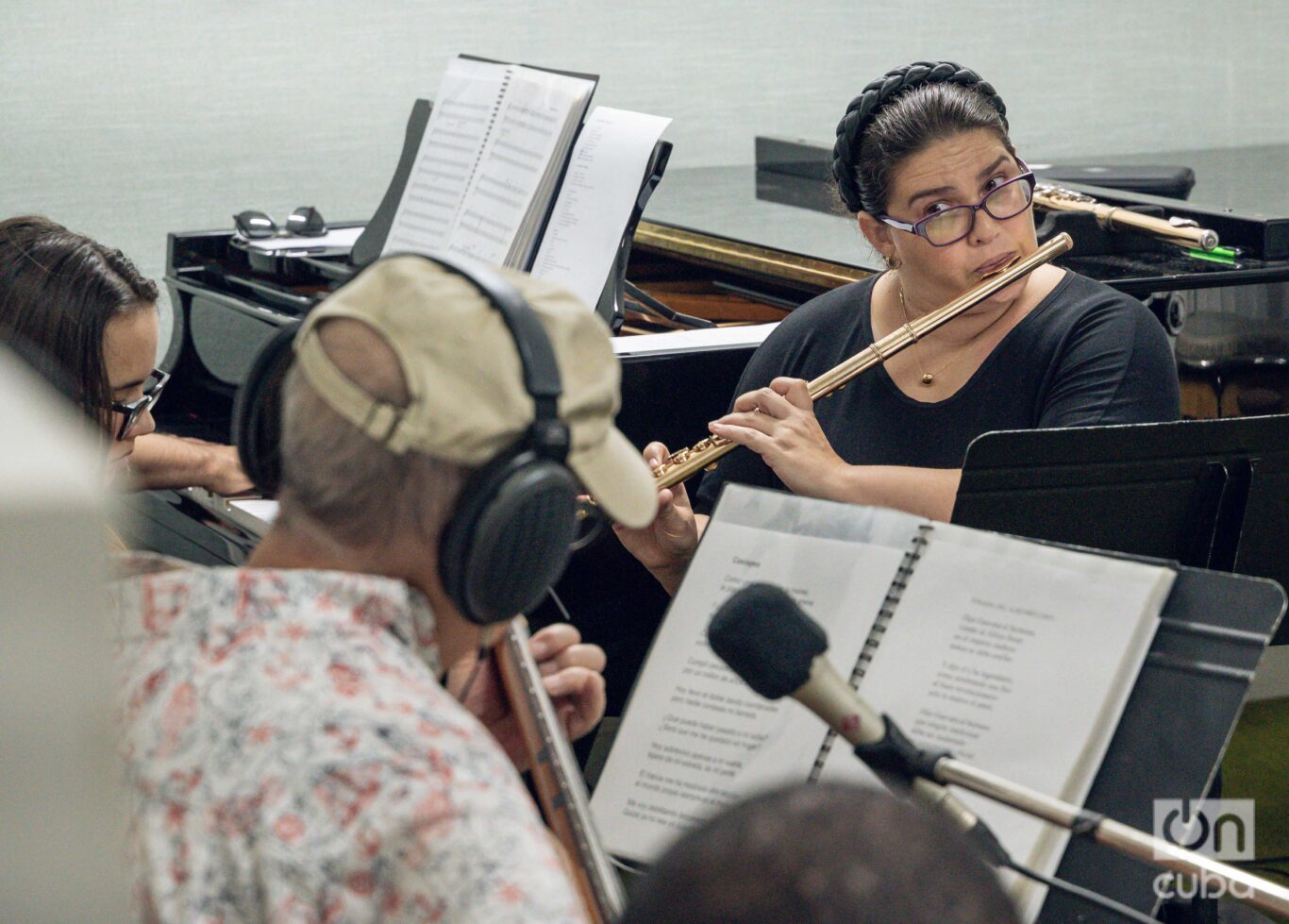
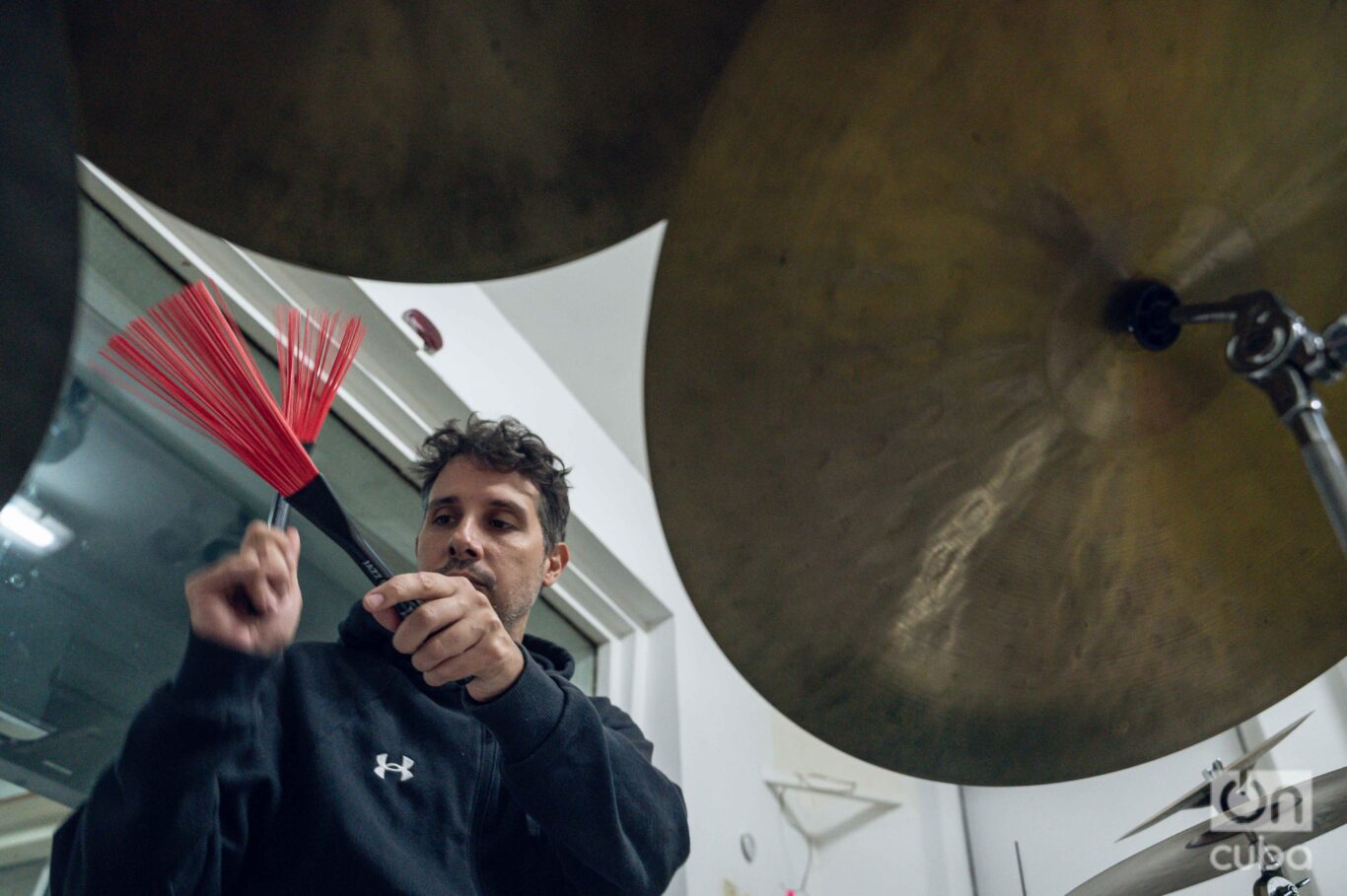
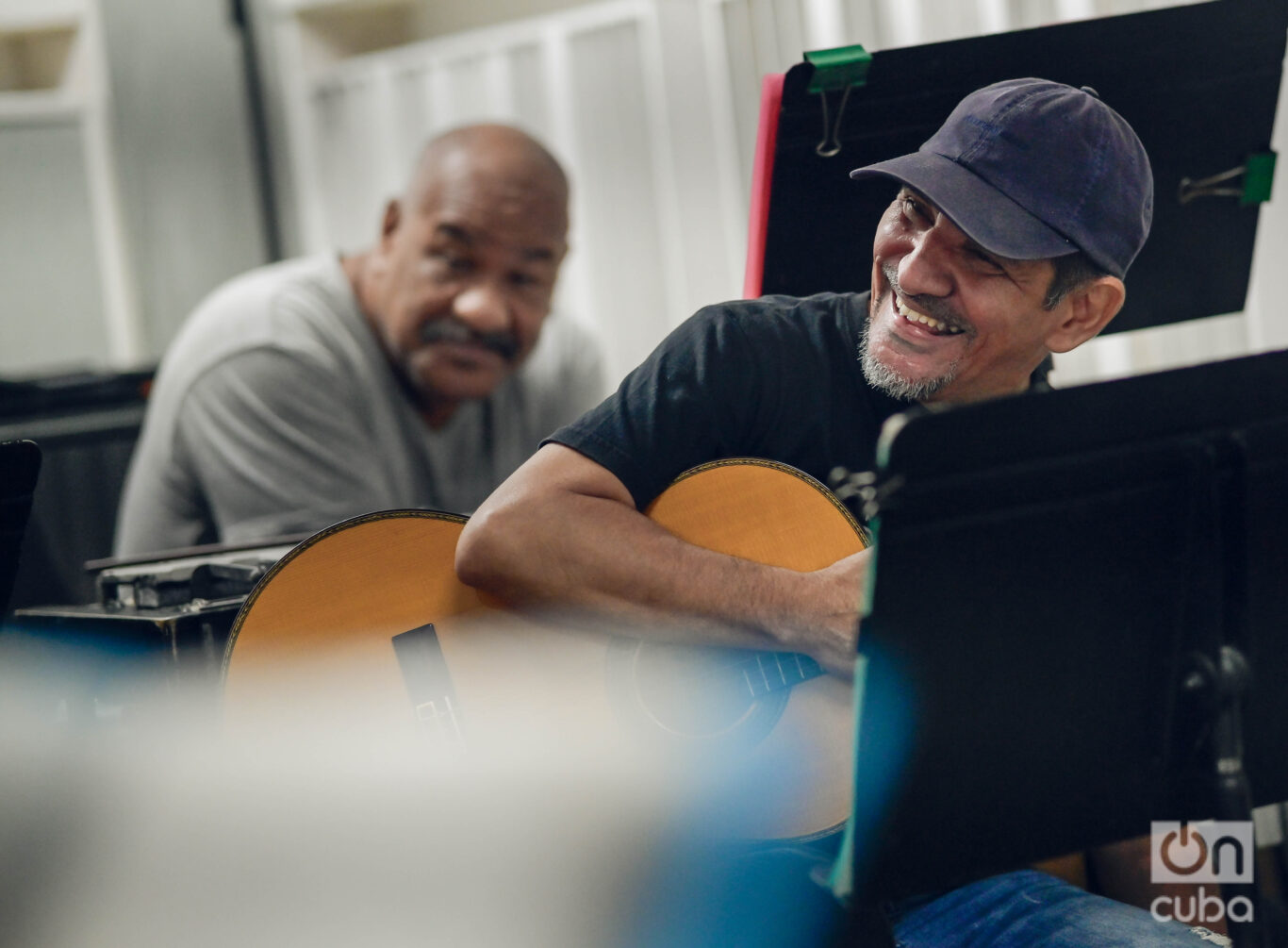
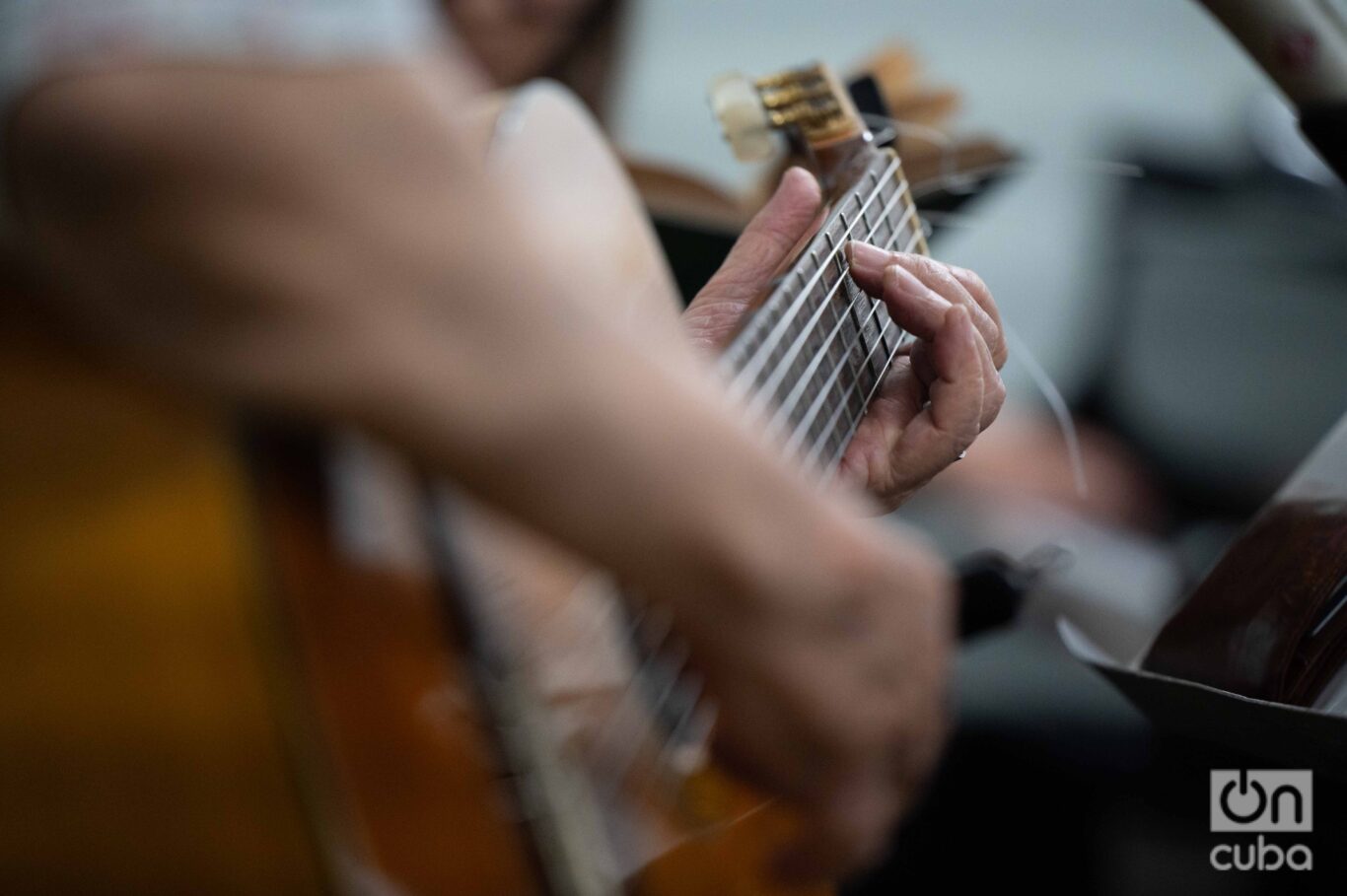
I — photographer, intruder? — am allowed to sneak in and be one of them, even if all I do is touch my camera. What a privilege. I crouch, trying to be invisible and, besides pressing the shutter, I activate all my senses to absorb every detail of this creative microcosm in which I find myself.
Nothing here is routine. Everything is a tug-of-war — a struggle and a game — where the human and the artistic intersect so that the music flows. It is also a tug-of-war between fatigue and laughter, between tension and humor. They repeat chords, phrases, verses…until everything is polished like a pebble in the river.
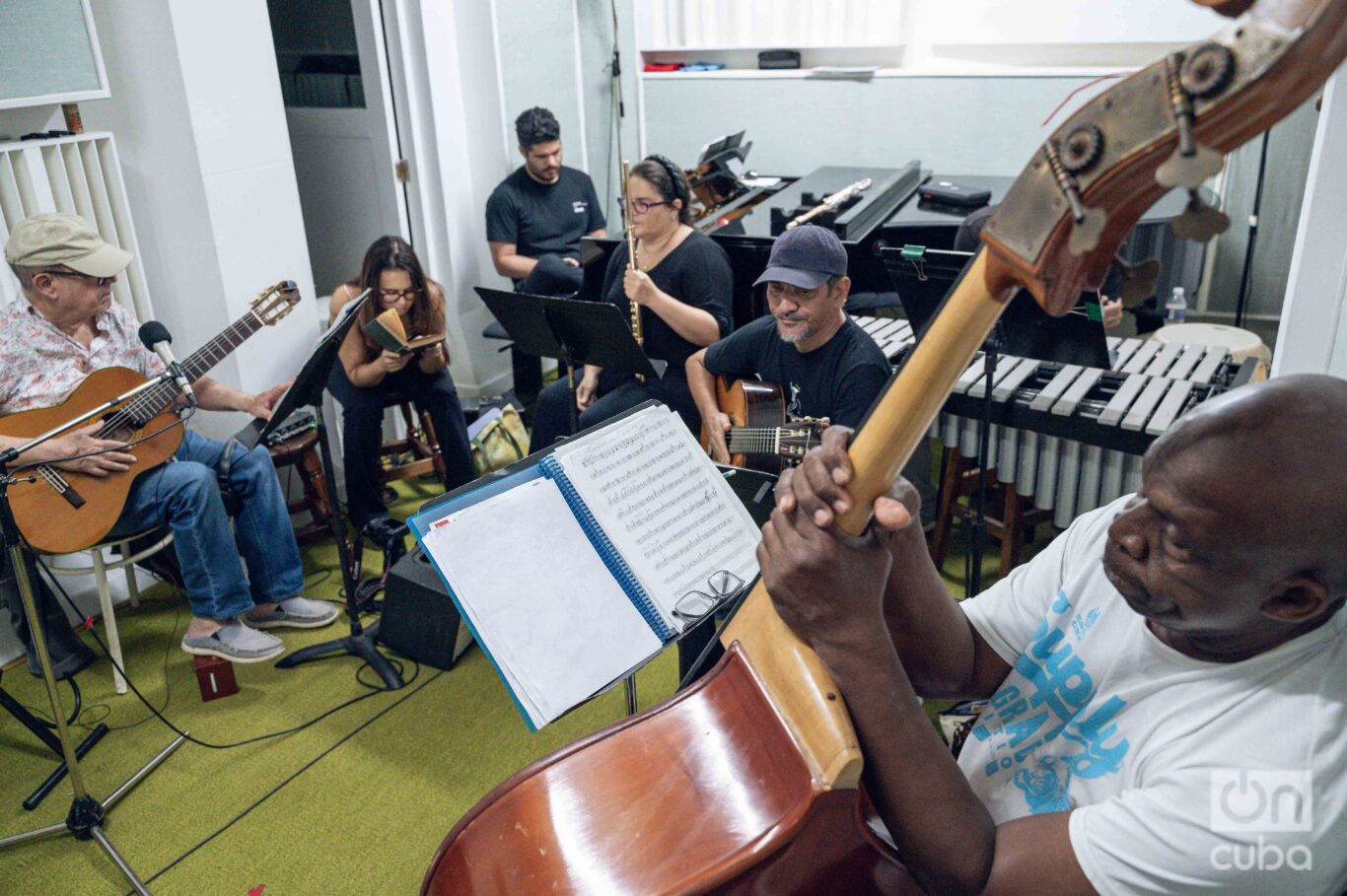
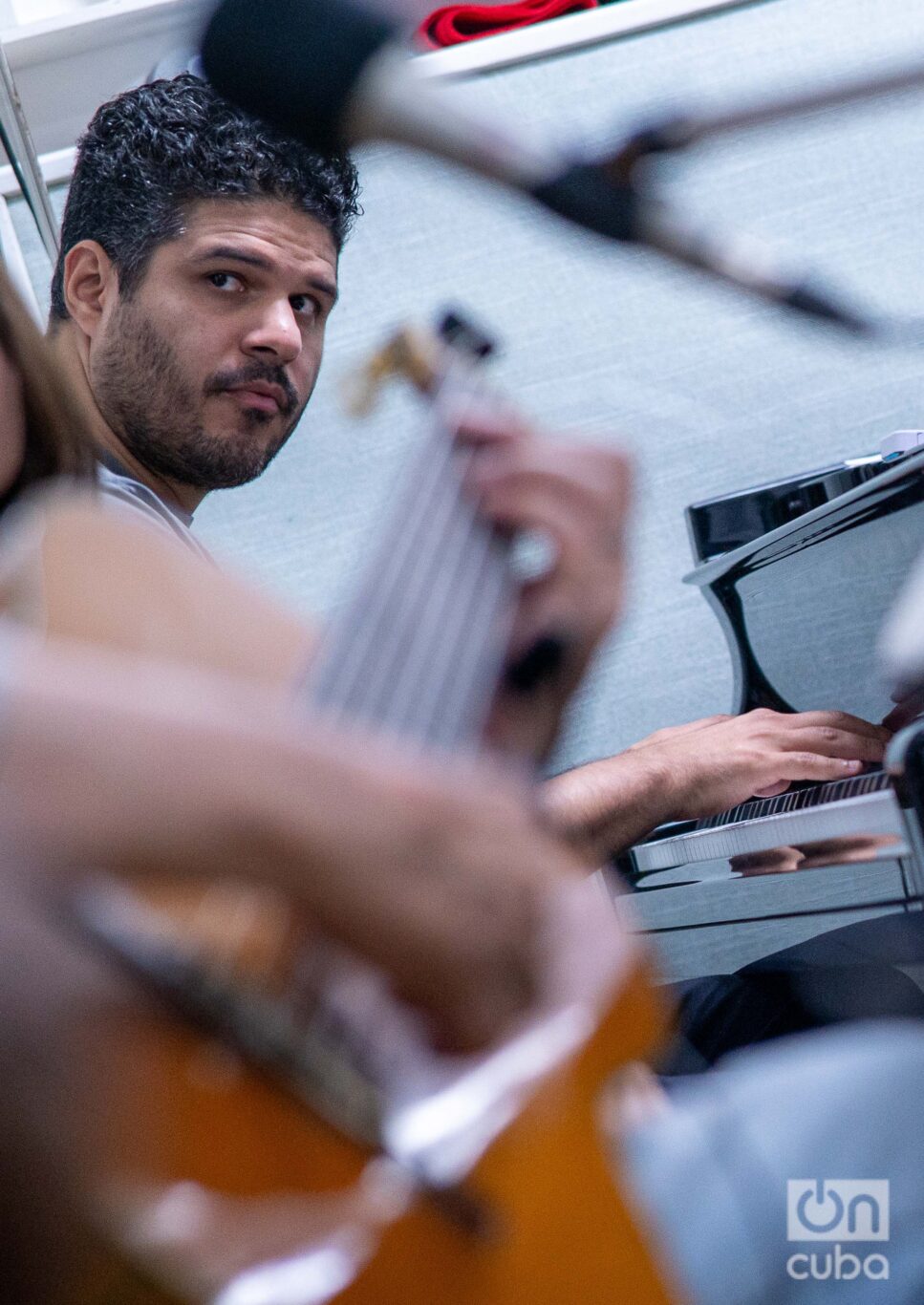
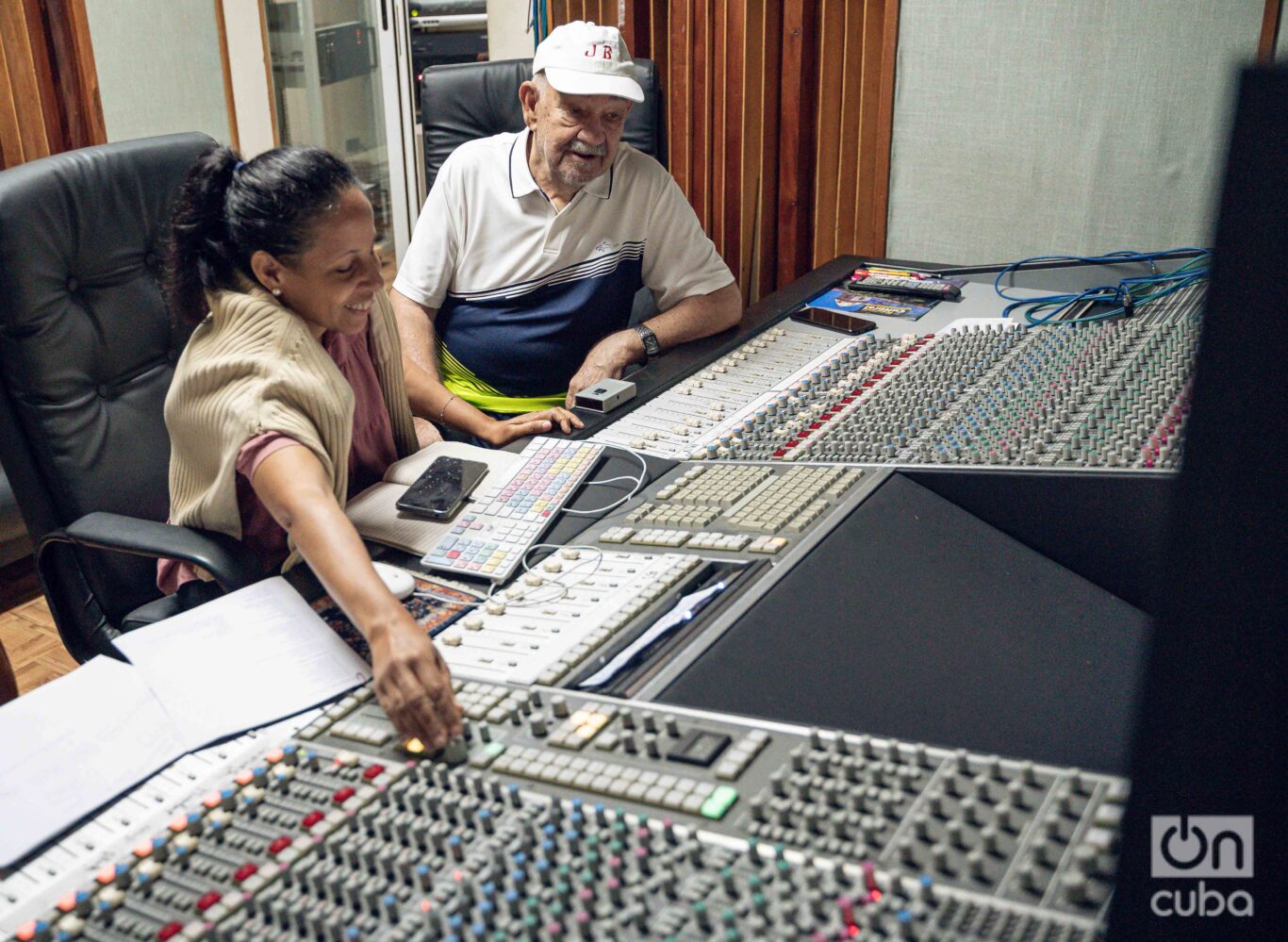
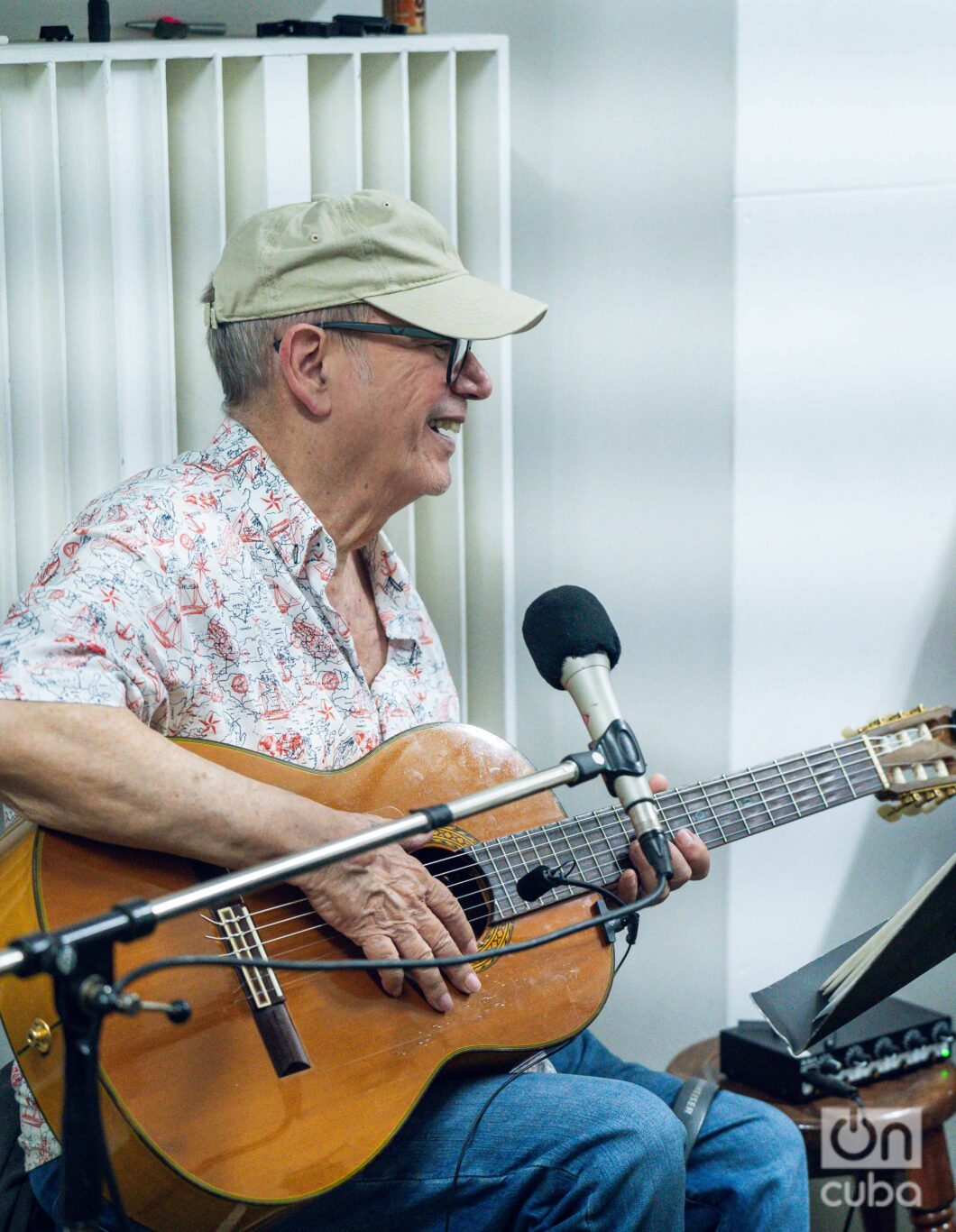
For three hours, they rehearse a repertoire of around thirty songs. The tour ranges from beloved classics like “Te amaré” (I Will Love You) and “Casiopea” to recent, almost new pieces that pulse with the urgency of these times: “Cualquiera que nace en Cuba” (Anyone Who Is Born in Cuba) and “Más Porvenir” (More Future). The latter was written by Silvio based on conversations he shared with Pepe Mujica and his partner Lucía Topolansky.
Everyday life seeps into the notes. They aren’t aliens: they’re Cubans. And, as in any Cuban queue or home, it becomes inevitable at some point to talk about “the thing”: “My house hasn’t had water for three days”; “The power went out twice last night”; “Sleeping without a fan is hard.”
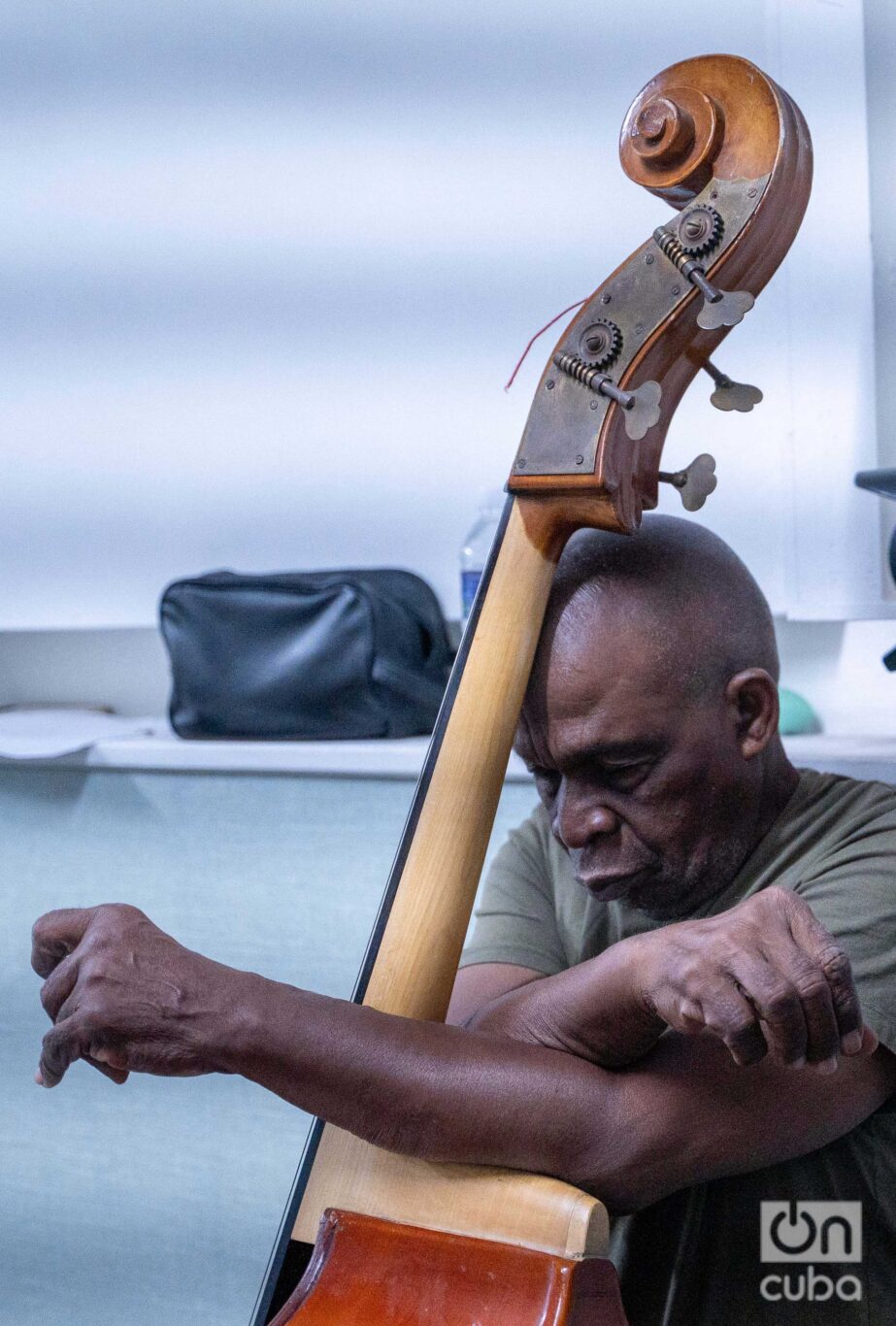
Confessions also emerge. We learn that Silvio is capable of saving cockroaches from the flip-flop that condemns them to death. In fact, it happens to him with any insect or animal. The singer-songwriter smiles and remembers: “The first smack on the head I received was from my father when I was little because I freed a mouse from a trap at home.”
And after those moments of relaxation, the music takes over again. Then come moments of poignancy. For example, after performing Noel Nicola’s “Es más, te perdono” (What’s more, I Forgive You), silence falls over the room. We are all shaken. Silvio caresses the page with the lyrics, whispers, “This is Nobel Prize-winning,” and then recites the verses aloud. A collective sigh rippled through the studio.
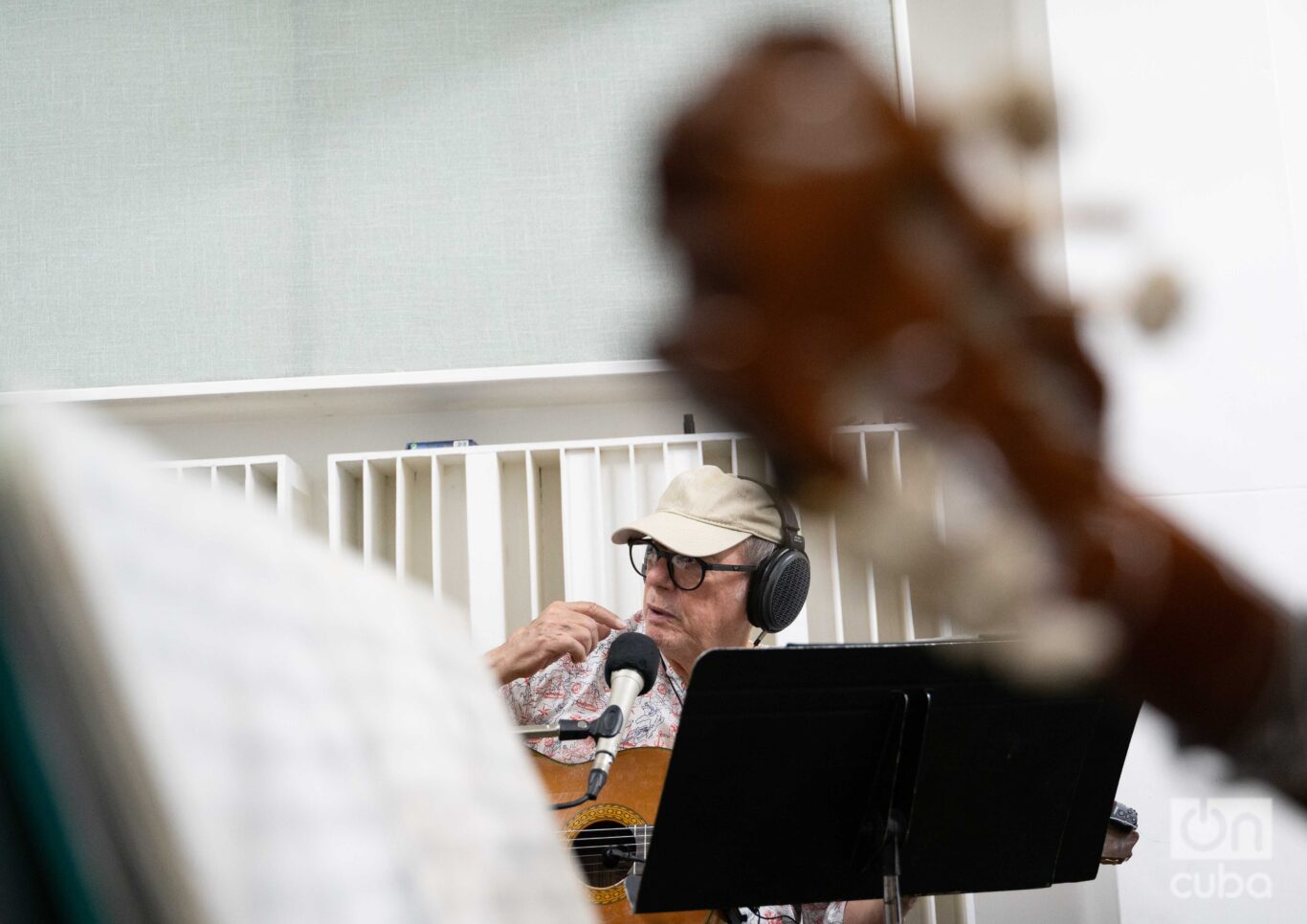
Other scenes unfold in this rehearsal setting. The youngest of the group takes advantage of the pauses when she doesn’t take part to open a book. Between her father’s guitar and her mother’s flute, Malva holds an old edition of One Hundred Years of Solitude, a green hardcover with gold lettering. While “La era…” plays, the pianist, now a reader, is immersed in the García Márquez universe. Perhaps entranced by the impossible inventions of José Arcadio Buendía, with that obsession with alchemy and science.
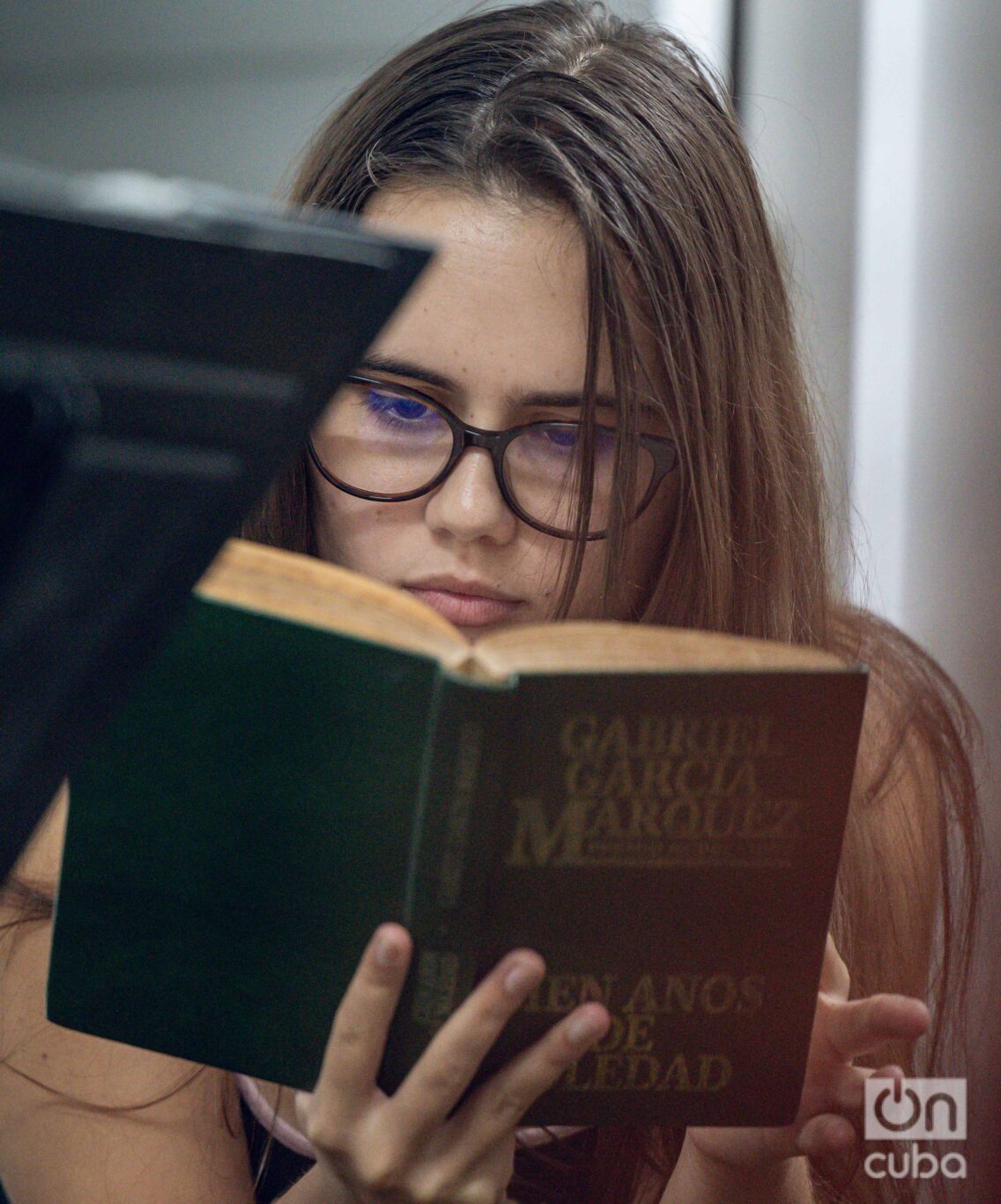
The analogy, then, is compelling: this small studio, full of imagination, talent and good vibes, has a Macondo side. Here, the extraordinary becomes naturalized and the impossible is told — or sung, played and sounded — with the same intensity with which life unfolds. And one wonders, as the music and songs embrace my photographs, if this isn’t definitely how wonder was conceived.

